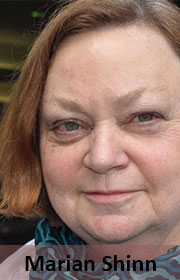 Government’s failure to get to grips with South Africa Connect, the nation’s ambitious broadband roll-out plan that promises to deliver high-speed broadband Internet connectivity everyone in South Africa by 2030, will be apparent to all during the state of the nation address (Sona) this week.
Government’s failure to get to grips with South Africa Connect, the nation’s ambitious broadband roll-out plan that promises to deliver high-speed broadband Internet connectivity everyone in South Africa by 2030, will be apparent to all during the state of the nation address (Sona) this week.
In his 2015 Sona, President Jacob Zuma announced that phase one of SA Connect, the connection of schools, clinics and government offices in eight district municipalities, would begin in 2015. In total 1 296 government facilities should be connected by the end of next year.
Will Sona 2016 on Thursday give any indication that this project will be animated any time soon?
The department of telecommunications & postal services (DTPS) was allocated a budget of R739m over the medium-term economic framework (2015 — 2017) to get the project off the starting blocks.
For the first year — ending March 2016 — R200m was to be spent against a national treasury-approved implementation plan. It is not known whether any of that money has been transferred to DTPS.
An intensive nationwide analysis of SA Connect’s progress by BMI-TechKnowledge — released in December 2015 to mark two years since the plan was approved by cabinet — found that progress “has almost entirely been limited to various uncoordinated initiatives by provinces and metros”.
A raft of parliamentary questions I have submitted to telecoms minister Siyabonga Cwele during 2015 received vague and dismissive responses, indicating that his department was not making headway.
For example, I asked for a breakdown of how the R200m earmarked for 2015/2016 was to be spent. The contemptuous reply of 7 August 2015 was: “To provide broadband connectivity services to the targeted government sites in the phase one districts.”
Two weeks ago, Cwele forbade his officials from giving an update to the parliamentary portfolio committee. He cited it would be inappropriate to do so as the issue might be covered in Sona. None of us bought that excuse as he has been dodging accountability for SA Connect’s progress for most of 2015.
The contentious issue of the “designation” of Telkom as the lead agency for SA Connect, without having first gone through an open tender and appointment process, is still unresolved.
In conversation with Cwele after his department’s strategic plan presentation in mid-2015, he told me that the conversation with Telkom was for it to deliver the bulk of the work in exchange for an agreed low cost to help kick-start its wholesale division.
In December 2015, deputy minister Hlengiwe Mkhize told a Telecommunication and Media Forum gathering that Telkom is offering government a special average rate of 47% discount on wholesale prices, compared to similar solutions being offered to its wholesale customer base. Whether this would be vaguely affordable and acceptable to Telkom’s board in the post-Nenegate climate is anyone’s guess.
Mkhize also said Telkom’s offer “will also include a dedicated contact centre to monitor and resolve service disruptions, and a cost-based wholesale price with a negotiated special rate for government that is below any market offer”.
How the deputy minister would know that this is “below any market offer” is anybody’s guess, seeing as the ICT sector has not been invited to respond to a request for information on the unspecified “lead agency” role or been given an opportunity to tender.
She also contradicts information given by Cwele to one of my parliamentary questions.

I asked him to explain the process of evaluating and appointing the “lead agency”. He replied on 27 November, about 10 days before his deputy’s speech:
— The “lead entity” has not been appointed yet. The department is following due process (unspecified) to facilitate the roll-out of broadband for phase one; and phase two is still at a planning stage considering that the funding has not been determined.
— The scope of work (to be done by the lead agency) will be finalised after due process for the appointment of the service provider has been finalised.
— The announcement of the service provider will only be done once the department has finalised the process and the subsequent conclusion of the necessary agreements.
If President Zuma does announce on Thursday night some progress with SA Connect, including perhaps the formalisation of Telkom’s appointment, this will not be good news as there will likely be legal challenges to the appointment process from industry players.
Unless, that is, Zuma acts on utterances during presidential question time in the national assembly on 17 November 2015. I asked him why the private sector was being shut out of SA Connect. He replied that no one was being shut out.
Maybe he has a surprise for the ICT sector. I’m not holding my breath.
- Marian Shinn is a Democratic Alliance MP and shadow minister of telecoms & postal services




